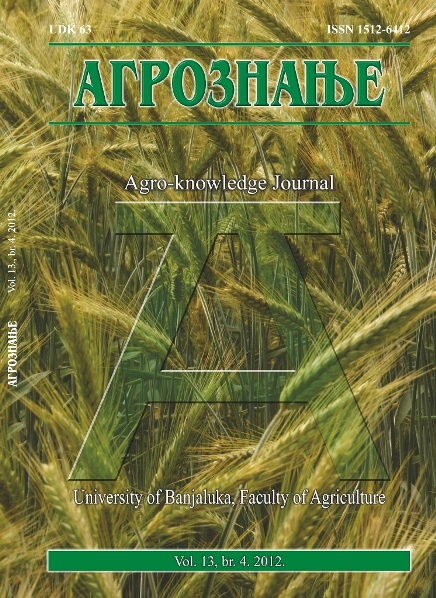Morphometric and Anatomical-Histometric Characteristics of two Varieties of the Species Solanum lycopersicum L. Infected by Cucumber Mosaic Virus
DOI:
https://doi.org/10.7251/AGREN1204591JAbstract
Viruses induce different external and internal symptoms on plants. Our investigations showed that the occurrence and the appearance of symptoms is a result of interaction of a specific virus and its host plant within concrete conditions of the environment. There are many literature data on the impact of viruses on the cell and its organelles and changes in tissue and organs, their structure and function, but very little data on the quantification of most of these changes. Therefore, in this study we determined some morphometric parameters (internode length, stem height, leaf area and weight) and some anatomical-histometric parameters (leaf thickness, upper and lower epidermis thickness, palisade tissue thickness, spongy tissue thickness, mesophyll thickness, area of upper and lower epidermis cells, area of palisade and spongy parenchyma cells, main nerve height and width and vascular bundle height, width and area of the main nerve) of two varieties of tomato plants (var. Saint Pierre and var. Novosadski jabučar) infected by 746-07 isolate of cucumber mosaic virus (746-07-CMV). The results show that the virus exerted influence on all investigated parameters, with some differences depending on the combination of virus/tomato variety. As a consequence of reduction of internodes length and stem height for both varieties, stagnation in growth occurred in higher percentage for the variety of Novosadski jabučar. Area and thickness of leaves were abortive in growth; they had thinner palisade tissue and its cell surface. From this, one may conclude that the productive ability of plants was reduced.Downloads
Published
2012-12-28
Issue
Section
Articles

